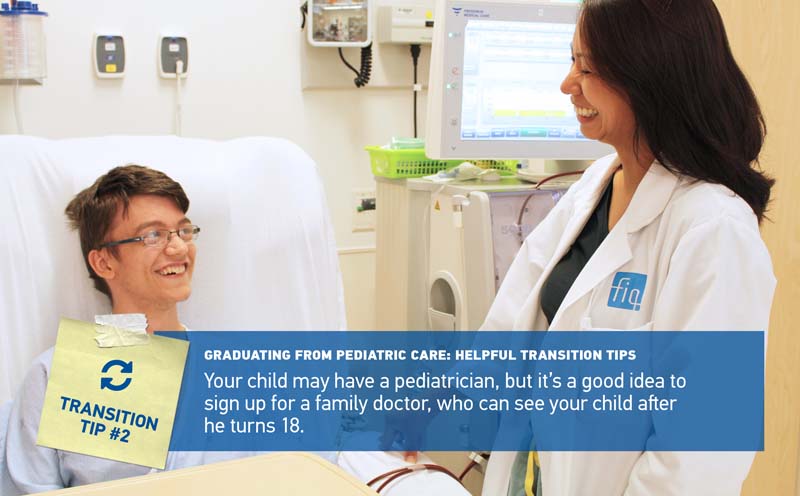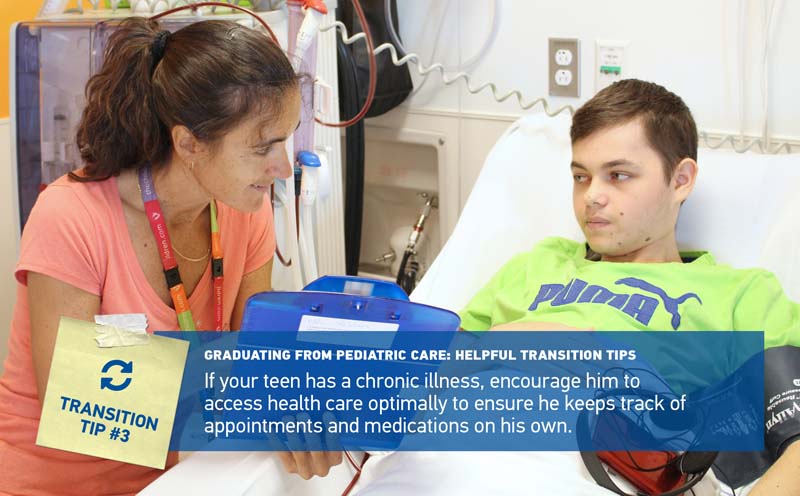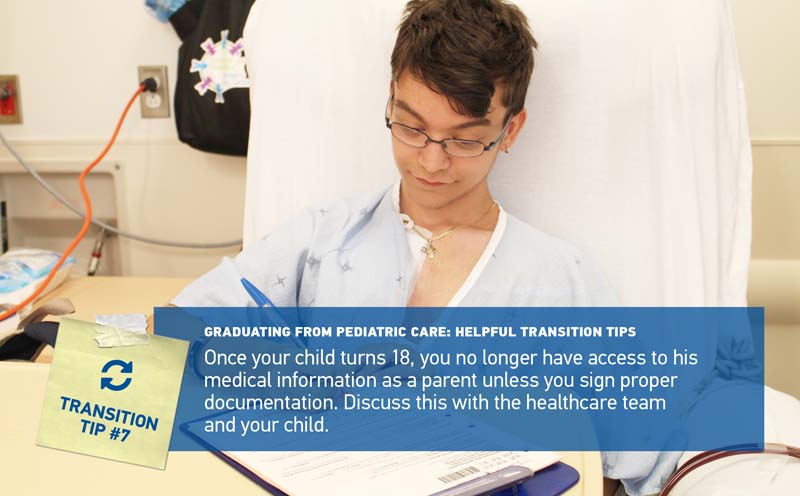Graduating from pediatric care: helpful transition tips
Do you have a child with a chronic illness? Have you started talking about his or her eventual transition to adult care? It’s never too early to start the conversation. In fact, talking about it early on with your child and his or her healthcare team can make the process as smooth as possible and ensure you and your teen have a good idea of what to expect. Keep the following tips in mind to guide your discussions.
Allow your child to take more and more responsibility for his or her own health care before the age of transition. When and if she makes a mistake, she will be surrounded by her parents and health care staff who she knows and who can help her learn from her experiences.

Do you have a child with a chronic illness, who will need continued follow up after he or she turns 18? It’s a good idea to sign up for a family doctor. Signing up is easy and can be done as soon as your child turn 14 years old. Click here to sign up today.

If your teen has a chronic illness, encourage him to access health care optimally – for example, by learning how to book appointments in advance, keeping track of when medication needs refilling and showing up to appointments on time.

Do you have a child with a chronic illness, who will soon be “graduating” from pediatric to adult care? Start discussing the eventual transition early on in your child’s teen years. Changes can sometimes create anxiety, but discussing a plan from an early age can help minimize this. Ask your child's health care providers where they will refer your child for adult care once he or she turns 18. Don't wait till your child is 17 to do so.

It’s a good idea to keep a file at home where you place all of your child’s important medical information, but especially so if your child is managing a chronic illness. Encourage your child to manage it himself as he gets older to make transitioning to adult care easier.

If your teen has a chronic illness, ask the healthcare team for a summary of his or her medical file, and create an emergency card that lists his or her medical conditions, medications, allergies, doctors’ names and numbers, and emergency contact numbers, which can be kept in a wallet or purse.

Do you have a child with a chronic illness, who will soon be “graduating” from pediatric to adult care? It’s important to note that once your child reaches adulthood, you will no longer have access to their medical information as a parent. If you and your child want your access to continue, your child will need to sign a document enabling you to do so. Discuss this with the healthcare team and your child.

If your teen has an intellectual impairment that prevents him/her from making health care decisions, consider legal options which will allow you to continue to speak for your adult child once he or she turns 18.

